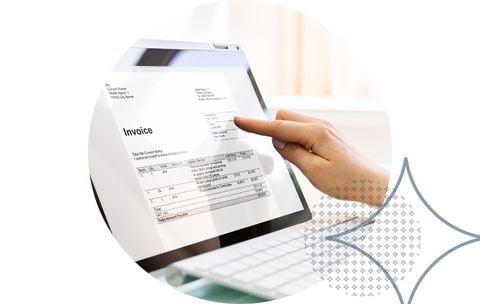How to pay an international invoice

How to pay overseas suppliers and employees by invoice
5 minute readIt’s reasonable to assume that an overseas invoice will arrive in your inbox at some point in the future. Making a payment without doing the right research could cost you more than the original sum and might even hurt your business relationships…
International expansion can be incredibly beneficial — it diversifies supply chains and provides access to a global pool of freelance talent to suit your requirement and budget. The real challenge arises when it’s time to pay for those goods and services. International invoice payments require a different set of banking information and are subject to a range of variables depending on the country you’re sending money to. Before you reach for your company credit card, you’ll need to do your research.
Requesting the correct bank details for an overseas invoice
There are several key pieces of information an overseas invoice needs before it can be paid. The most important being an IBAN number and a BIC code.
The IBAN number (International Bank Account Number) is an alphanumeric reference code used to identify an individual bank account. Each number within the code pertains to a specific detail about the nature of the account. Read our full guide for more information on IBANs and how to identify them.
A BIC code (also known as a SWIFT number) can usually be found as part of the IBAN number. It’s used as a global identifier for a specific bank or financial institution. For more information on BIC/SWIFT codes, read our helpful guide. As well as an IBAN number, you’ll also need details of the VAT for the country you’re sending money to.
Will I need to pay VAT on an international invoice for goods or services?
This depends on both the types of goods/services you are paying for, as well as the country you are them from. If your payee is VAT registered, they’ll need to include their VAT number on the invoice along with the VAT charge in their country. You can check a list of global VAT rates to see whether the goods/services you’re buying are exempt from tax or are available at a reduced rate — each country has its own VAT charges and rules.
If you're paying VAT on the invoice, you’ll need to convert the value of the invoice into sterling, calculate the VAT and then include it on your VAT return. This is known as the reverse charge rule.
The final cost depends on the exchange rate
When you pay an overseas invoice, you aren’t just paying for the work completed or goods received. International payments come with additional fees which impact the total cost of the transaction as a whole.
The payment is subject to a transfer fee which differs in price depending on the amount you’re paying and the method you use to transfer the funds. For example, sending through your business bank account could cost anything up to £40 per transfer when using a high street bank.
You will also need to account for the exchange rate of the country you’re transferring funds to. If their exchange rate is weaker than yours, you may be able to secure a good deal and vice versa. For example, a $1,000 USD invoice cost £777.00 in November 2020, but back in April it was over £100 more expensive to pay.
It’s a good idea to begin monitoring the currency exchange market if you know you’re due to pay an overseas invoice in the near future. Keeping tabs on the exchange rate will help you forecast your business outgoings and could affect the deal you get.
How to use a currency specialist to pay international invoices
Currency exchange specialists have experience helping SMEs save time and money on overseas payments, so it makes sense to work with one if you intend to make several transactions in the future.
A currency exchange specialist can set up rate tracking for you, so you won't need to manually track currency fluctuations prior to making a payment. You’ll receive a notification when your desired rate is reached, leaving you free to work on more important things.
Opening a business account with a currency exchange specialist could take the legwork out of securing a good rate. You'll have the option to take out an FX order which automatically triggers the payment if your ideal rate is reached. If the current exchange rate is good and you’re planning to employ a freelancer on retainer or have a standing order with a supplier, you can remove yourself from the mercy of the fluctuating exchange market by taking advantage of a forward contract. This will protect you from unfavourable market downturns by securing the current rate for up to 2 years.
Each business has different needs when it comes to overseas payments. Working with a currency exchange specialist gives you access to a dedicated account manager who can advise on the best solution for saving time and money on overseas payments.
Take the professional approach to managing your overseas payments by opening your free moneycorp business account.


